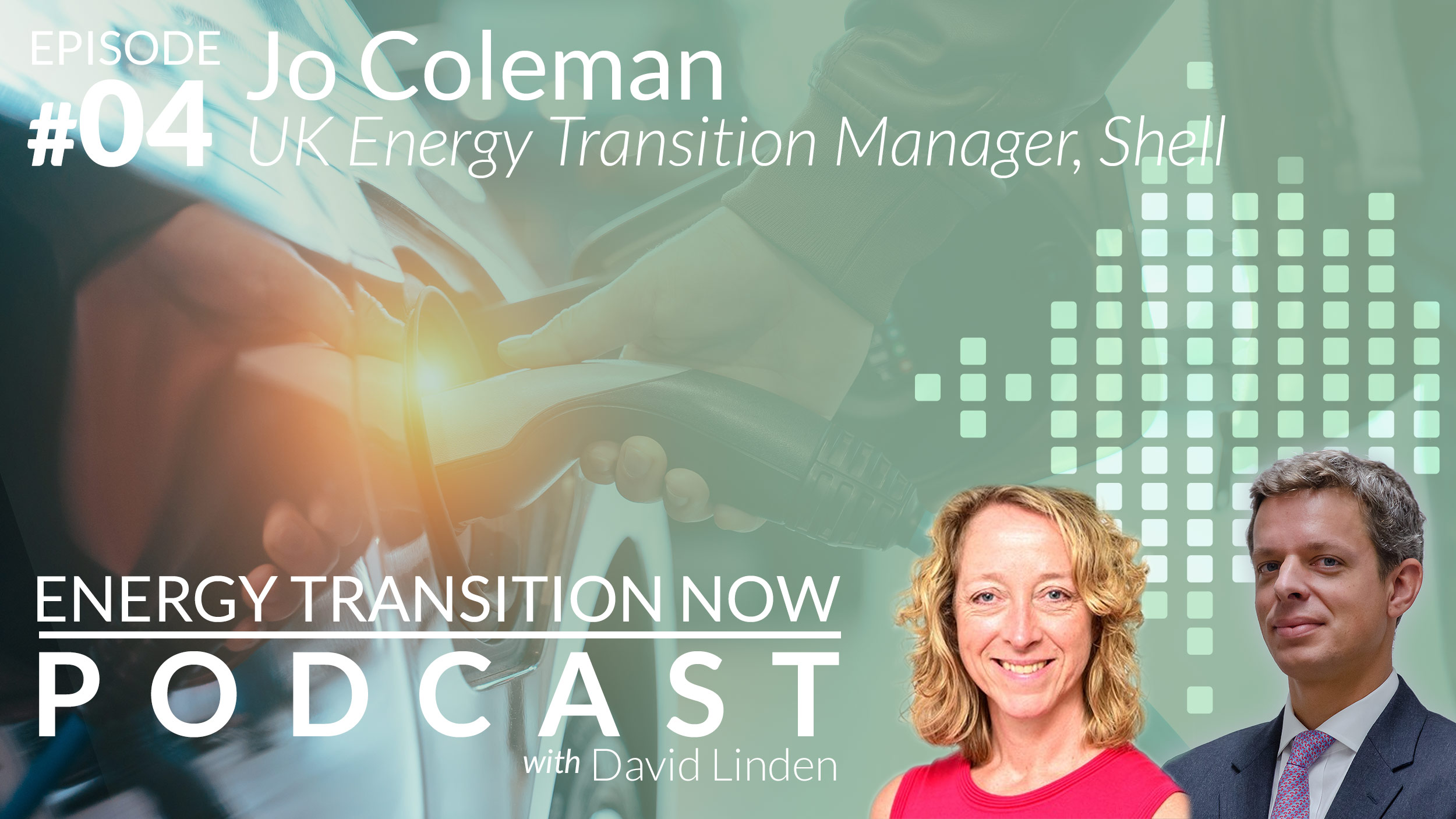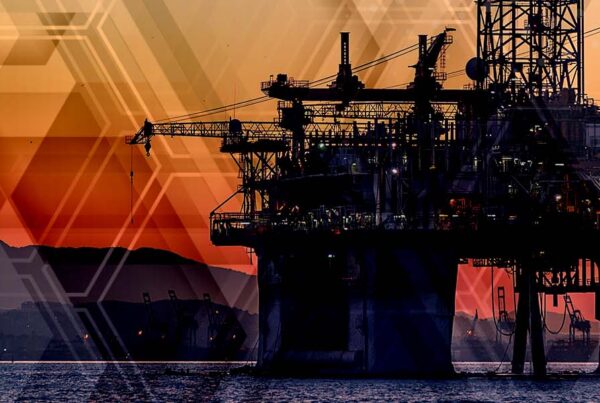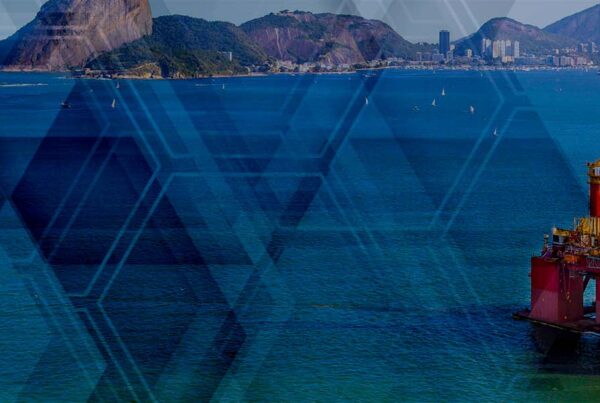Energy Transition Now - Episode 1 with William Day
In the first of Westwood’s Energy Transition Now podcasts, David Linden speaks with Sustainability Consultant, William Day.
During this episode, David and Will explore what sustainability, the energy transition and achieving ‘net zero’ really means; both for our economies as a whole and the use of fossil fuels. They then turn to what the oil and gas industry should do now to succeed in an evolving environment, and what potential legal and financial risks the industry faces if it does not act in line with the climate science and Paris agreement.
About Will
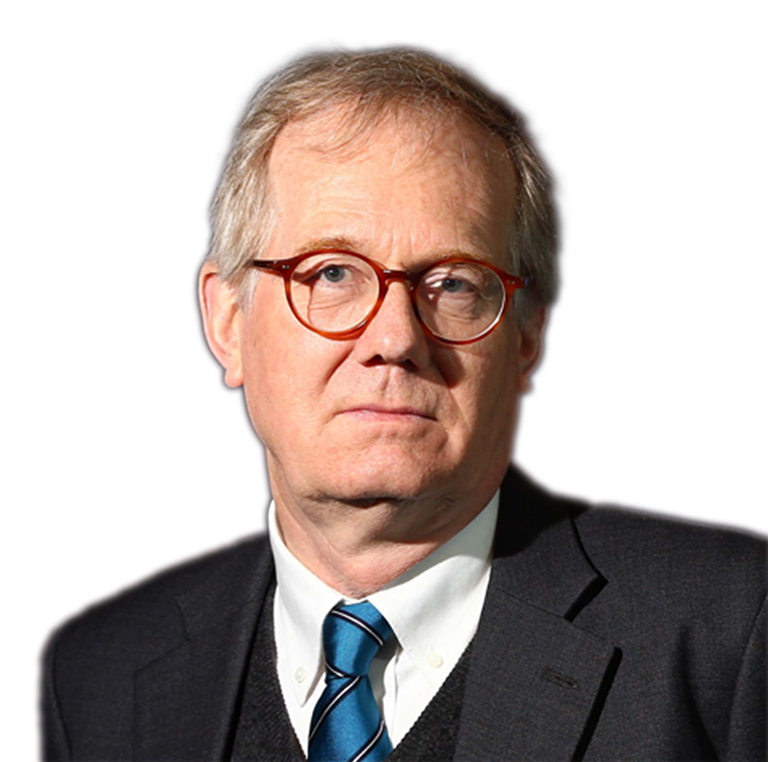
Will is Sustainability Advisor, and a Fellow of the University of Cambridge Institute for Sustainability Leadership (CISL) and Chairman of the Sainsbury’s Foundation Advisory Board.
He sits on the Advisory Boards of SDGLead, a Danish impact investment consultancy and The Hatchery, a South African agri-focused investment fund. Will is also Chairman of On Purpose, developing leaders for Social Enterprise, and a Member of the Council of Ambassadors of WWF (UK).
Previously, will was Chairman of the UK government Sustainable Development Commission, and a member of the P&G Sustainability Advisory Board. He was involved with the establishment of Comic Relief, and it’s first grants director for Africa, was Chairman of the BBC Children in Need Appeal and Special Advisor to the United Nations Development Programme (UNDP). Will was Trustee, and latterly Chairman, of the Overseas Development Institute (ODI). Until 2018, he was Chairman of Water and Sanitation for the Urban Poor (WSUP).
Earlier in his career Will worked for Save the Children Fund and Oxfam in humanitarian relief programmes in East Africa, was Director of the micro-savings and credit organisation Opportunity, and CEO of CARE International UK for 8 years.
DL: Hello everyone and thanks for tuning in. I am your host David Linden from Westwood Global Energy Group and you are listening to the first in a series of new energy transition new podcasts. The aim of these podcasts is to discuss and explore what the energy transition really means for energy and specifically the oil and gas industry. In this first part or chapter of our series, we will look at the response of the industry as a whole and we have got the International Association of Oil and Gas Producers, IOGP and the Oil and Gas Climate Initiative OGCI to help us with that. But to set the context around all of this, I wanted to invite someone who is not part of the industry to give an outsiders view of sustainability, the energy transition and how the industry should be viewing things and that very excellent individual is Will Day.
Now, Will is a Sustainability Advisor and among other things sits on or is chair of a number of sustainability related advisory boards. He is also a fellow at the Cambridge Institute for Sustainability Leadership or CISL, which is how I know him. Needless to say, he has an incredible impact throughout his almost 40-year career of working with NGOs and businesses on sustainable development and he continues this by advising boards, exec teams, governments around the world in helping to understand and identify the strategic risks and opportunities that they face as the world evolves. For clarity though, Will is speaking to us as an independent advisor today. Will, a very warm welcome, great to have you on the podcast.
WD: Thank you, David.
DL: Did I miss anything on your background at all?
WD: No, I think that was fine. Thank you.
DL: Perfect, perfect. Let’s go back to basics then to kick us off for the listener. Could you maybe just explain to us what is sustainability as such and why is achieving it important?
WD: So, sustainability is a useful word in some ways and not in others because it’s often misunderstood. A definition would be meeting the needs of the present without compromising the ability of future generations to meet their needs, which basically means don’t spoil the future for future generations. I think it often gets confused. I hear lots of people talk about sustained growth or sustainable growth and they confuse those two things. Sustained growth is we keep growing and sustainable growth is we recognise the boundaries of over and unsustainable consumption. Why is it important? It’s important because if we don’t do that thing, we are walking down a short plank with a very long drop off it. If you look at the consequences of climate…and not just environmental issues like climate and biodiversity but getting the social things wrong as well. Importantly, sustainability has a social ingredient, not just an environmental one.
DL: Okay, it’s not just all about carbon and carbon emissions?
WD: It isn’t, although clearly that’s often at the forefront of the conversation because we are seeing the practical consequences of a warming planet on an hourly, let alone a daily or a weekly basis. So, it tends to draw the attention but sustainable development itself is a broader idea.
DL: What are the implications for the energy industry as a whole and not just oil and gas but why is it we ultimately need, I guess, an energy transition?
WD: Well, I think one of the reasons why the sector is in the spotlight is the fossil fuel element of energy, I think energy per se is hugely important. We will need and have based our growth of our economies on the use and exportation of energy. It’s the fossil fuel element; it’s the greenhouse gas part of that, which is the problem. So, that’s why within the energy sector, oil and gas has been…and coal particularly has been the focus of attention because the science is pretty undeniable, and the science says that we have over time put much more carbon dioxide equivalent into the atmosphere than is sustainable in the sense of a balance between temperature and the environment. So, it’s important not just for the energy sector, you know, we have got large chunks of the world’s economy, which also produces greenhouse gases but in some ways, fossil fuel is the most easily identifiable one.
DL: Okay, okay. And maybe for the listeners just to, sort of, put it into context, as you said there, there are other elements or other parts of our economy, which are also producing carbon or inputting carbon into our atmosphere, which is not helping with the warming of the planet. But is energy the prime driver here in terms of carbon emissions or is it concrete production or what are we looking at?
WD: That’s why it’s, kind of, inconvenient because it’s the whole economy, David. Actually, if you look at where those emissions come from, of course they come from fossil fuel. Not just the use and burning of it for heating and cooling our houses or buildings for example but a third or so of global emissions come from land use and agriculture. So, it’s not just about moving to electric cars and renewable energy, it’s about understanding where these emissions come from and what needs to happen to reduce and minimise them. It’s one of the reasons why net zero is emerging as the only really feasible objective for organisations who are in control of their emissions, such as energy users or energy producers.
DL: Okay, that’s interesting. Thanks for also bringing up that net zero idea, it’s something that the oil and gas industry has started to focus on as an area, you know, net zero emissions etcetera, etcetera. It is frankly quite confusing when we have just had the Paris Agreement and they have talked about different temperatures you need to reach or goals that we are setting. What is different about net zero, what does it really mean?
WD: Well, I think the reason it’s there as I have suggested is because there are chunks of our economic activity, which we will find very difficult to reduce the emissions from. Food production is an obvious one, which means that if we are in control of any of those things and we have alternatives, we will need to get to them as quickly as we can. The science is pretty clear; we have got about 10 years to get our emissions down to pretty much zero globally. So, anything, which can be replaced or transformed, will need to be because we will then have to work on the difficult bits.
I mean to give you some sense of it, at the moment we are heading for about a 3.8-degree global increase in temperature. The insurance industry has said that if we get to 4-degrees, the world is uninsurable and the banks have said if we get to 4-degrees and its uninsurable, it’s then unbankable because the risks become too great. So, the costs of not getting carbon emissions down and dramatically are basically the success or failure of the global economy and that’s a pretty high price to pay.
DL: Absolutely. There’s an interesting point you made there, which is you have got 10 years. For clarity, is that 10 years to get to net zero or is that 10 years to make the right kind of action to get to net zero by I guess mid-century?
WD: No, the science is pretty clear. My colleagues at the British Antarctic Survey tell me that we will need to get globally to net zero by the middle of the century, physically get there and then we will have to remove carbon from the atmosphere for the rest of the century if we are going to hold the increase to 1.5-degrees and that’s the sort of number that science says is kind of safe, although it is an increase on what is happening now and we are already seeing the consequences in terms of climate and food production and water of the existing increase, which is something over a degree already.
So, no the 10 years is to get us down certainly on a very steep glide path down. The science says if we can’t get globally to net zero by the middle of the century, then there’s a very high price to pay and of course what that does David, is it means that, you know, you mentioned the word transition in your introduction. I actually much prefer the word transformation. It seems to me that transition could be made to last a long time if we are not careful and the science is pretty clear that we haven’t got very long, we will need to transform the business.
DL: So, with that word transformation then in our minds here, I mean what is it that oil and gas or fossil fuel businesses but, you know, specifically I guess the oil and gas sector, there’s already a lot happening on the coal side. What should oil and gas be doing now to…well, I guess either support or be part of that transformation?
WD: Well, I suppose the first thing is the shift in mindset really. It’s invidious to name names but I have been interested to watch BP redefine itself, ‘We are not an international oil company, we are an integrated energy company,’ that feels to me like a necessary first step, which is, ‘We are not oil and gas but we are energy because the world needs energy,’ how do we do that in a way which meets the other requirements of humankind and the wider, kind of, ecosystems that we rely upon? So, the first thing is a mindset.
The second thing I think is to try and resist those voices that say, ‘Make this last as long as you can, you have got valuable assets pinned to the ocean floors and drilling rigs and expensive bits of kit, let’s make them last as long as we can.’ I think that is a defensive posture, which will be very hard to justify. We are already seeing the legal system being used to bring cases against oil and gas producers for their historic emissions because people are saying, ‘You have knowingly caused a problem to me, you will now be liable for that.’ So, I think the advice is going to come not just from science, but I suspect it will come from people’s legal departments as well.
DL: That’s very…what about things like, you know, a lot of companies certainly in the last year, there has been a lot of momentum from the oil and gas industry to recognise…and this has been a longer-term point as well but recognition that scope one and two, sort of, emissions coming from operations and particular things like methane leakage and, you know, on the flaring side and reducing routine flaring etcetera, that’s been a big focus and I think that will ramp up more as we go forward as well. I mean what are your thoughts on those aspects, the industry trying to play a part and getting a license to operate?
WD: Clearly all activity in that area is good. These are, you know, polluting and damaging emissions but I suppose my starting point is it’s not enough just to do the wrong thing better. We are going to pollute less, we are going to emit less, this is fine and as I said, I wouldn’t discourage that and there are people working very hard and innovating to reduce methane leakage for example, but it is still the wrong thing in scientific terms.
And the question I suppose companies must ask themselves is, so what is the right thing? If we are trying to do the wrong thing better, what is the right thing and that’s where the, kind of, mindset shift I think needs to come in. I am not going to in any way suggest people should slow down their efforts to reduce emissions, the more the merrier, but not if it’s a justification for keeping fossil fuel in the system for longer than science tells us it needs to be there.
DL: And what about, you know, you started to talk about this from the banking and the insurance side of things and also potentially from the legal side of things. What ultimately do you see is the risk of these companies not acting now? I appreciate there is a science angle, which is we might not hit our targets but there must be also risks to the companies themselves?
WD: Oh, I think there’s existential risk. I think society and politics will not tolerate damage to the environment. Let’s face it, the consequences of a changing climate are going to get more and more acute, bigger and stronger, you know, hotter hot, wetter wet, dryer dry. We are going to see stronger and worse impact on humans, and they will say, ‘Stop this, make this thing go away,’ and they will then turn around and say, ‘Well, who is to blame for it?’ That’s why, you know, I have already mentioned the fact that the legal profession is now looking at the activities of companies emitting…and who have been emitting over, you know, decades and the perception is they have enriched themselves by doing so, they will be held to account.
New York is suing Exon for the cost of defending Manhattan against rising sea level. A Peruvian small hold farmer is suing RWE for their historic emissions affecting ice in the Peruvian Andes. So, we are looking at significant and novel risks I think, which are I am hoping in boardrooms where companies are looking now strategically at what their choices are and the price and the cost of doing nothing, versus the price and cost of adapting and being part of the new economy, not the old one.
DL: And in terms of, you know, you talked about someone like a BP changing their mindset and you can see that’s starting to filter through to some of the businesses and the supply chain. What is it that some of these businesses can actually use as a guide to change? Because again it is a very confusing space, you have had the Paris Agreement and people talk about the Paris Aligned. You have also had all sorts of different transparency requirements come out, different targets being set, governments maybe running at different speeds in terms of the ambition they are setting. What is it they should be doing here in terms of, you know, this is what I should follow because this is going to allow me to get to a position that’s aligned with where the world is going?
WD: David, I don’t think any of that is limited to oil and gas or energy businesses. I think every business in the world now is expected to understand its impact on climate and the impact of a changing climate on their business. I think the investment community is now requiring it; the regulators are increasingly requiring transparency. The TCFD, the Taskforce on Climate Related Financial Disclosures is requiring increasingly reporting on those things. So, I don’t think any company can ignore it. In fact, I think if any director of a company these days was to operate ignoring these issues, they would probably be liable for, you know, neglect of their duties, of their directors’ duties.
So, being Paris aligned is helpful in the sense that it’s a global agreement people can look at what two degrees or less than two degrees means. It will require them to look at what they do and how they do it and work out how they are going to do it in a net zero or a zero-carbon world and big financial investors like Black Rock are now asking directors of the companies they are invested in to show them their strategy related to climate and to show them how they are going to get to a net zero world. So, I think the pressure is on. I don’t mean that in a bad way, I think it can be seen as a positive in the sense that it will drive innovation and companies that don’t read the rooms and don’t understand and are not aware of those issues, will go to the wall. I mean I think it’s Mark Carney basically said, ‘Firms that ignore the climate issue will go bankrupt,’ and I think that’s blunt but I think that’s exactly right.
DL: Oil and gas though is in a particular place because it is ultimately producing the hydrocarbon and the fossil fuels that are producing, you know, when they are combusted, ultimately the carbon that is warming up our atmosphere, but it is also the lifeline of their business. So, in one way they are stuck between a rock and a hard place as to the pace of change and what they do. So, hydrocarbons are not going to disappear overnight. Could you maybe just talk about your view of the pace that these companies need to be changing at to give a sense to the listener?
WD: I think to start with David, you know, let’s face it, oil, gas and before it coal were the drivers of our economic growth and prosperity. They are amazing materials and for a long time, they were used to drive economic growth in genuine ignorance of the impact it was having on the wider world. So, this idea that they are the problem is a relatively recent thing and I think it hurts, you know, investing in the oil and gas world and energy world for your career, suddenly being the bad guy doesn’t feel very nice. The fact remains, the science is undeniable, and it does mean that these are some of the biggest and richest companies in the world and they are attracting significant attention.
The upside is that they are often very well resourced. Financially, they are wealthy, they have the opportunity to invest in the solution, but they haven’t got long to do it, you know, you talked about timing, the timing is yesterday if we can do it. We are already seeing sea levels rise, we are already seeing crop failures, we are already seeing dramatic temperature shifts and climate shifts. So, the idea that we can make this transition last 20, 30, 40, 50 years doesn’t stack up in terms of the science and that in the end is what is going to drive things. It’s worth noting that when Covid started last year, politicians and the Prime Minister made an absolute point of having scientists standing next door to them in the briefing room at Number 10 and they are saying, ‘Look, these are difficult decisions but we are being guided by the science here,’ well actually, climate change requires some difficult decisions but politicians seemed to have managed to avoid being guided by the science for the last 10 or 20 years, as the urgency became more and more apparent.
I think that will change. I think that politicians are going to say, ‘Look, the science is absolutely clear here, there are things at risk, which are too important and too expensive, we have to change.’ And whether they then use taxation, whether they use regulation, whether they use incentives for the alternatives, but they will get things changed and they will get things changed because we, I hope, as a population will demand it.
DL: And that’s a really interesting point as well. I think that the difference here or a lot of what you are talking about is around what I will call maybe the systemic changes to how we fundamentally change the structure to incentivise certain types of energy or support certain types of energy and businesses versus others to help transition our economies. But what about what I call individual actions? So, is there an onus on us as individuals to do the right thing as well and partly the reason I ask this is a lot of discussion is on not eating meat, you know, making the choice to buy an EV and all those types of things. So, where does that fit in your mind of systemic change versus individual action?
WD: Well, it’s both and. I mean that’s a, kind of, slightly cop out answer to your question. The system is desperately locked in at the moment in terms of infrastructure, hard infrastructure and mindsets to the exploitation of fossil fuels and we have done very well on it but that needs to change, and the system needs to reflect that fact. It’s not just oil and gas as I have suggested. To give you an idea, the third largest contributor of greenhouse gas on the planet is the global cow herd, the herd of cows. Cows produce more greenhouse gas impact than twice India, so there is going to need to be a change way beyond just how we move about and how we, you know, manufacture, and distribute goods. It’s going to be what we do and how we behave and that will, to a large degree, be down to individual understanding and awareness as people, as responsible people.
My experience David is that if I give a talk on the nature of the kind of, global trends and what is going well and what is going badly and I start by asking people in the room, ‘Anybody got a child under the age of 10 or a grandchild or a nephew or a niece?’ And most people put their hands up and I say, ‘Right, everything I am going to tell you will happen in their lifetime,’ and I then go on to describe a set of pretty hairy outcomes if we don’t significantly change the way we do things now. Looking out of the window here today, it’s sunny, it’s fine, we are comfortable etcetera, etcetera, you don’t get the sense that we are sitting in a situation where unless we make a significant change and I don’t think that has to be worse, I think it can be an improvement, we are going to leave a legacy, a significantly less stable and less comfortable world for our children. We will be fine, our children less so, any grandchildren absolutely less so.
DL: Okay, wow. Thank you, Will. Maybe the final question I have is around, you know, if I were to be a cynic and you and I both sit in the UK, very much in what I would call the European context of things and I have certainly seen the discussion move forward significantly over the last, well arguably just the last year but maybe the last couple of years in particular. It has always been there but it’s maybe more public and more real in the last year or so. Is this just a European story that we are talking about because we started to accept the science more, we have had, you know, Greta on our doorstep and people are talking about it more here but actually in other parts of the world, and I am thinking of, you know, Asia and Americas in particular, this is less something that’s on, you know, in the boardroom and within government agenda.
WD: I think you’re right. I think if you are confronting populations living in poverty who wish to have their lives improved, we all know that energy and access to energy is a fundamental part of growing prosperity and wellbeing, so that’s fine. The question is not do people need energy and do they need functioning economies? It’s how are those economies going to be, you know, run and where is the energy going to come from? I give you an example if we get it wrong, you know, if we warm the planets to an average of two degrees, which we are more than heading for now, over time between 75 and 100 per cent of the population of Bangladesh now live on land that will be flooded as an example.
Climate impacts the poor much more than it impacts the rich, that’s an obvious thing. The rich can buy the air conditioning or buy their way out or move house, the poor can’t. Between 25 and 50 per cent of the populations of Australia and New Zealand currently live on land that will be flooded in a 2-degree world. So, these are absolutely enormous consequences, not just for the prosperous but for the entire planet and those who will suffer the most are those who are least able. They have got the quietest voice in international negotiations. Even within their own countries, they have often got the quietest voice and they will be impacted the most.
So, you know, I don’t think…and going back to your very first question, to move towards a more sustainable global society and economy, we are going to need to address a whole range of things, amongst which is the absolutely clear link between greenhouse gas emissions and global health in every sense of the word and that is why it often comes, you know, climate often comes to the top of the list of things to do because these are things that we have a lever on. I think we should be looking at it positively. I think we should be seeing this as an opportunity to drive innovation, do things better, you know, electric cars are not like milk floats anymore, they are actually much, you know, they are fun to drive. So, and they are brilliant, and they do lots of things right. I don’t hold them out as the only answer, but I think it’s an illustration that when we start to apply ourselves to getting things better, not doing the wrong thing better but working out what the right thing is, then that’s a huge opportunity. This is often a very gloomy agenda item, I think we should turn it around and say clearly there are risks, let’s work out what the opportunities are.
DL: Great, thank you Will. I totally agree, you know, you mentioned it right at the…well, halfway through I guess, around mindset as well and having the right mindset for this and turning it into an opportunity is absolutely the right thing. I am afraid that’s all we have time for today but that was very insightful and thank you so much for sharing your thoughts with us today on sustainability and particularly also, you know, the role of energy within that. So, thank you again, Will.
WD: Thank you for asking me.
Copyright and Reproduction
This website contains material which is owned by or licensed to Westwood Global Energy Group. This material includes, but is not limited to, the design, layout, look, appearance and graphics. You may not modify, reproduce or distribute the content, design or layout of the Website, or individual sections of the content, design or layout of the Website, without our express prior written permission. For media enquiries, please contact [email protected]
Sign-up to receive energy transition news and alerts of new podcast releases
Episodes coming soon!
EPISODE 3
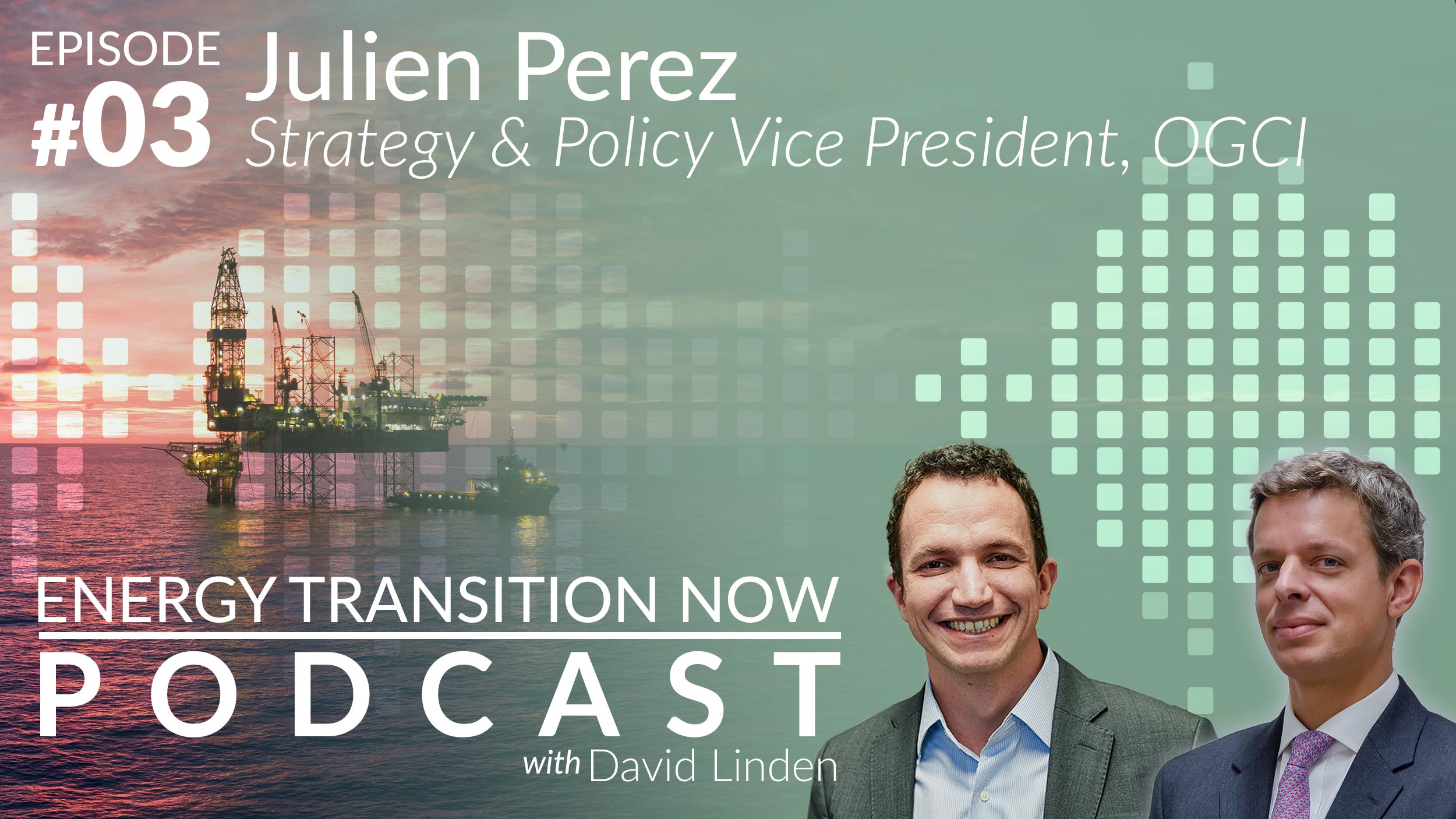
Julien Perez
Strategy & Policy Vice President, Oil & Gas Climate Initiative
EPISODE 2
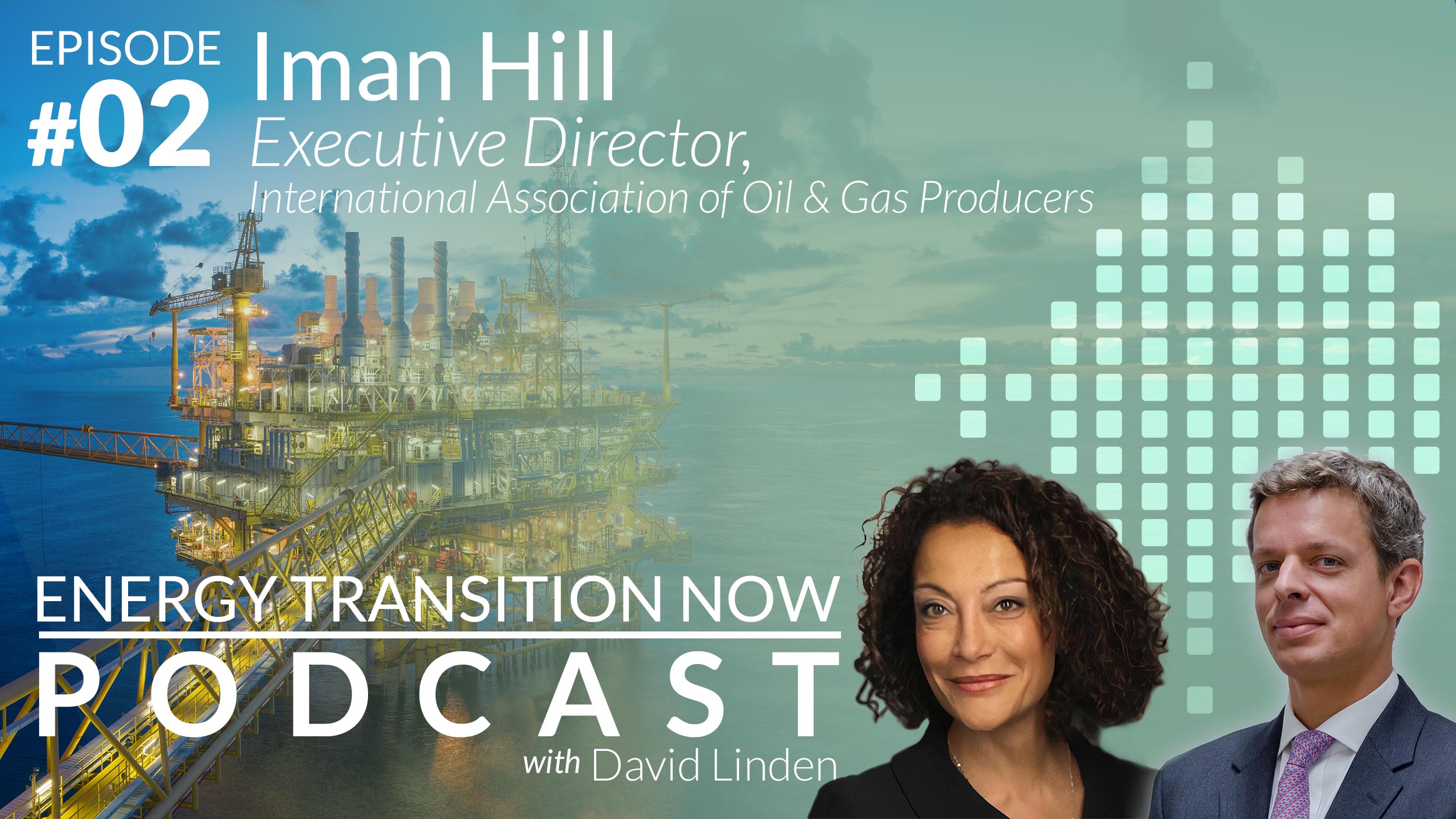
Iman Hill
Executive Director, International Association of Oil & Gas Producers


